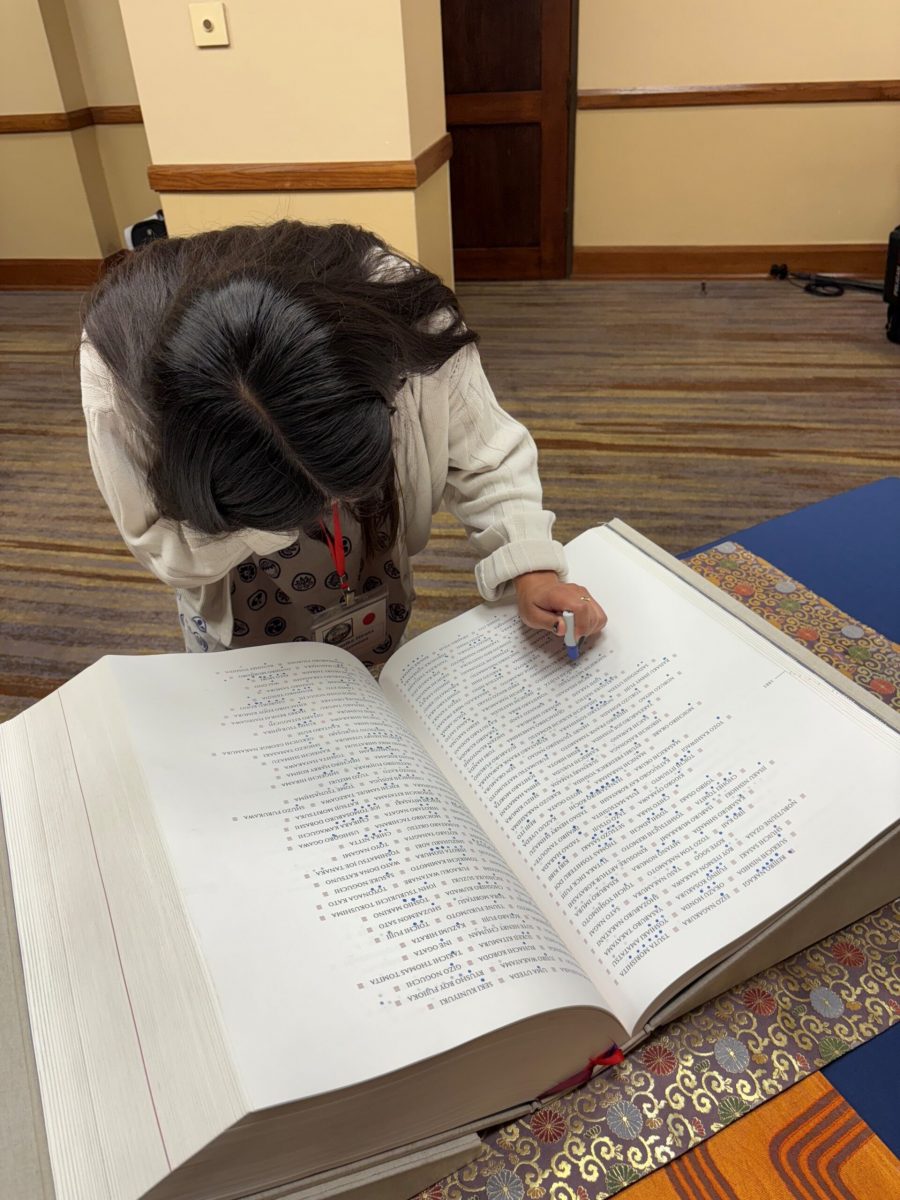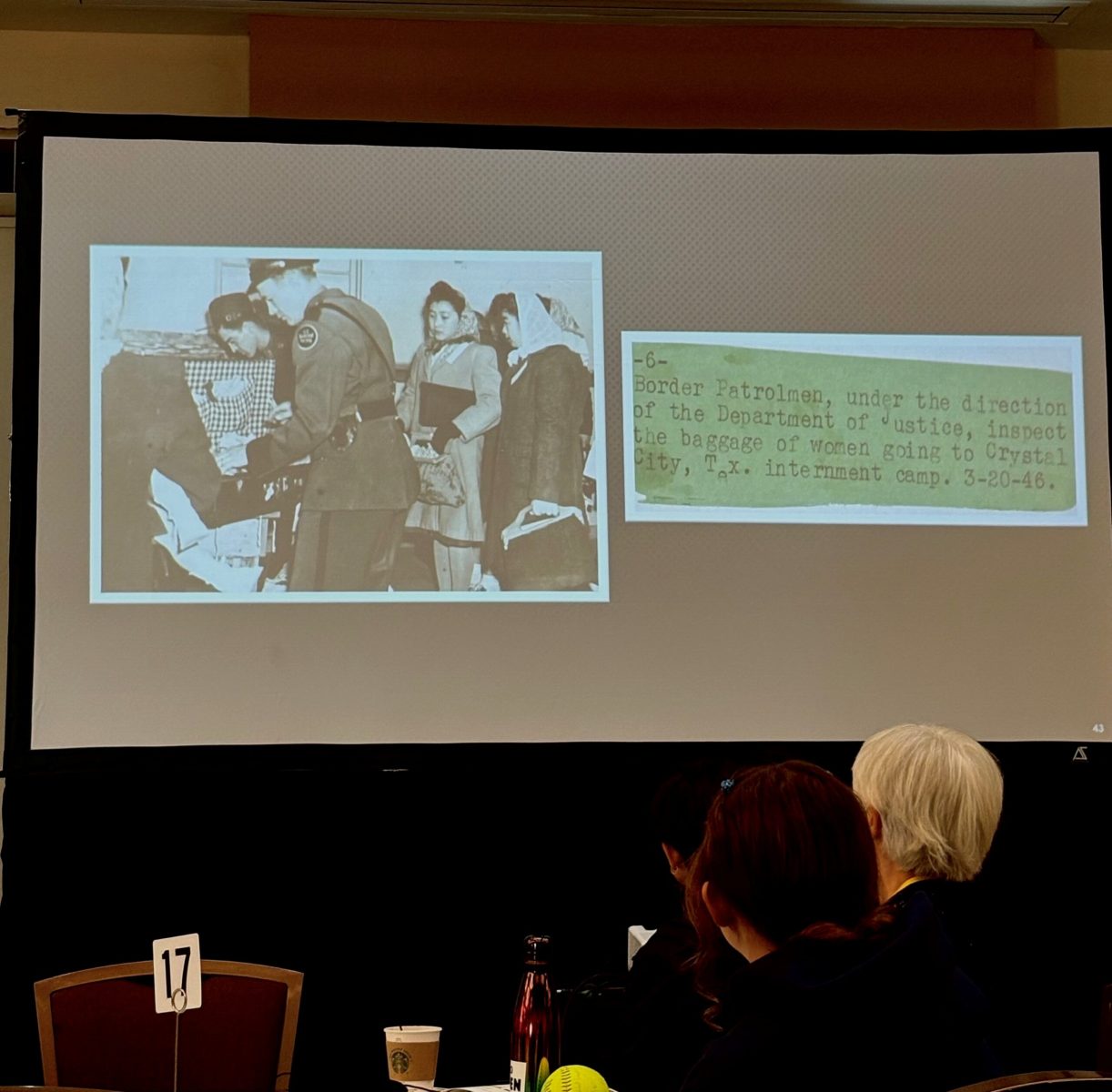In this powerful reflection, CWS’s Associate Director of Policy, Kimiko Hirota, recounts her experience at the 2025 Crystal City Pilgrimage, drawing connections between her family’s history and the renewed use of the Alien Enemies Act under the Trump administration. As immigrant communities face mass detention and deportation today, she calls on Americans to remember past injustices and resist their return by demanding dignity, oversight and lasting legislative change.
From 1942 to 1948, the Department of Justice interned thousands of Japanese, German and Italian immigrants, as well as Japanese Americans and Japanese Latin Americans, in Crystal City, Texas. The camp was promoted as a “family reunification” site—but it required Americans to renounce their citizenship to be reunited with their loved ones. Ultimately, several thousand people interned at camps across the United States were repatriated to the country of their nationality, some by choice and others by force.
I was especially moved by the Pilgrimage because of my own family’s history. The day after Japan’s attack on Pearl Harbor, my great-great grandfather was deemed an “alien enemy” and taken from his home by soldiers armed with bayonets. He remained jailed away from his wife and son for years, simply because he was Japanese and a pillar of his community in Hawai’i. At the Pilgrimage, I had the opportunity to view the Ireichō Book of Names—the first comprehensive list of every person of Japanese ancestry incarcerated in the WWII camps.
As I placed a hanko (stamp) beside my great-great grandfather’s name, I became overwhelmed thinking about the monuments future generations may build to remember the immigrants wrongfully jailed and vanished from their homes today.
Some 31,000 immigrants were arrested and interned under President Roosevelt’s invocation of the Alien Enemies Act of 1798 (AEA). Eighty years later, President Trump invoked the same archaic law to disappear hundreds of Venezuelan and Salvadoran men to a mega-prison in El Salvador without due process. Although litigation has slowed its use, the Trump administration has made clear its intention to deport massive numbers of immigrants as quickly as possible through a barrage of policies. In April, the president even suggested sending U.S. citizens to the same mega-prison, telling El Salvador’s President Nayib Bukele “the homegrowns are next.”
As of November 6, 2025, 66,000 immigrants are being held in ICE detention—a tragic new record high. The United States already operates the largest immigration detention apparatus in the world, and it is only growing bigger after receiving billions of additional dollars for further construction in the so-called “One Big Beautiful Bill.” The Trump administration is also turning to military bases to hold immigrants, including some that once interned people of Japanese descent. Ironically, several of these same bases most recently welcomed Afghans fleeing the Taliban. Now, they will serve as the last places some immigrants see before being chained and sent to home countries or even to countries they have never known.
While the details may differ, the forces are familiar: political hysteria, racism and xenophobia once again guide U.S. policies toward and treatment of innocent people. Our loved ones and neighbors are being arrested at their jobs, schools, houses of worship and homes and imprisoned in horrific conditions.
Congress must act. Lawmakers should pass the Neighbors Not Enemies Act, which would finally repeal the Alien Enemies Act and prevent future abuse of its powers. They should also assert their oversight authority to ensure that immigrants are treated fairly and with dignity by immigration and law enforcement agencies.
At the conclusion of the Crystal City Pilgrimage, local residents gave each of us soil from the camp in an act of remembrance and solidarity. This small gesture was a powerful reminder that our responsibility does not end with remembrance. Communities across the United States must know their rights, speak up for the vulnerable, and refuse to let history repeat itself.
Kimiko Hirota is the Associate Director of Policy with Church World Service.



